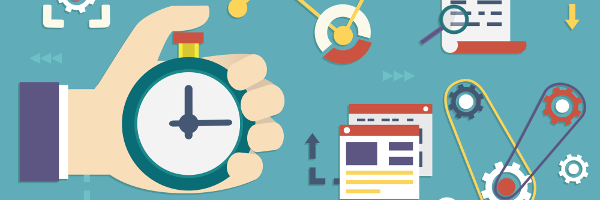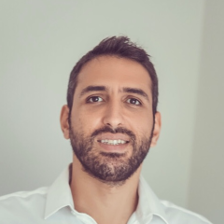
Time is pretty much the only resource you can’t get or buy more of. That is why becoming a more productive person can make a big difference in your life, both personally and professionally. Below you’ll find 5 productivity hacks I learned over the years and can’t live without now.
1. Batch processing
Wherever you have small and similar activities to do, separate a specific time of your day and do all of them at once, as opposed of doing them individually as they come up.
Email is the biggest example of how batch processing can make you much more productive. Instead of keeping your email client open throughout the day and stopping to read and reply to new messages as they show up, separate specific time slots where you will read all the new messages and reply to the necessary ones. This way you will be much more focused and more efficient at reading and replying to the messages.
For example, I only open my email client early in the morning and early in the evening. It takes from 30 to 60 minutes to read all the messages and reply to the essential ones, and after that I can get to some real work.
2. Audio books
You will certainly agree with me if I say that reading books and learning from other people’s experiences is essential to becoming a better person and a more skilled professional, regardless of your field.
The problem is finding time to sit down and read!
That is where audio books come in. You can listen to them while doing other stuff, including driving to and from work or business meetings, while working out or jogging, while cleaning the house and so on.
I used to read around 12 books per year before I started listening to audio books. Now I am up to 24 books per year or so. As for where I get my audio books, I am a client and big fan of Audible (owned by Amazon now).
3. Weekly planning on Sunday evening
When I started trying to become more productive, the first habit I adopted was the to-do list. My to-do list didn’t have any time frame, though. It only included the tasks that, eventually, I was supposed to complete. As you probably can guess, this wasn’t very effective, as some of the tasks would stay on the list for weeks, even months!
After that I started using daily to-do lists. All the tasks on the list were supposed to be completed by the end of the day. This improved things as it created a sense of urgency, but very often changes in my routine and schedule would make it impossible to complete all the tasks on the list, so I would need to carry them over, beating the purpose.
Around one year ago I came across a suggestion: weekly to-do lists, where every Sunday evening you sit down and plan everything you need to do on the coming week.
I gave it a shot and was blown away by the results. I became more productive than ever with this strategy, because 6am Monday morning I was already going full-steam after the listed items. Usually I manage to complete the list by Wednesday or Thursday, which allows me to start working on new stuff much sooner.
4. Distraction blockers
With the explosion of smartphones, mobile apps wanting to grab our attention, texting and push notifications, our attention spans are getting shorter every day. We always want to check what is new on Twitter or Facebook, what is happening on Instagram or Pinterest, or what messages we received in the last hour. This can very distracting and will definitely hurt your productivity.
The solution? Block all those distractions while you work!
The strategy I use is the following: mobile phone is always on silent mode and preferably on another room, so I don’t even get to look at it once in a while, avoiding the temptation.
As for distracting websites, I use a Chrome extension called StayFocused. It allows you to specify which websites should be blocked after you spend a certain time on them. I include sites like YouTube and Facebook, and limit it to 10 minutes a day (all combined!).
5. Finishing what you start
As mentioned above, our attention spans are getting shorter and shorter, and a consequence of that is developing the habit of stopping regularly from what you are doing to take a break or so something else more interesting. For example, once or twice while writing this article I considered opening the browser to visit a couple of news sites. I resisted the urge, though, because that is a terrible habit to develop.
Always finish what you start. If the task at hand is too long, allowing yourself a break or planning the completing over several days is fine, but make sure that those breaks are planned and that you always finish the chunk you committed yourself to.
Do you have other productivity hacks? Please share them with a comment below.

Hi Daniel, Really a very helpful article. It took 5 minutes to read. I like the point 1. Emails are the really distracting for me. I always try to give quick response. Now, I can save time. Fortunately, I am following other points in similar way.
Very straightforward stuff. I recently started the permantly silenced phone (and flight mode). More recently putting it in another room has helped.
I am curious what your thoughts are on the pomodoro technique? Does it have merit, or does it get in the way of completing a “dedicated chunk.” As I currently use it and find it helps to only have to wait a short while before: making a coffee, getting a snack, checking email etc.
Curious to hear your thoughts on that.
Regards,
Daniel